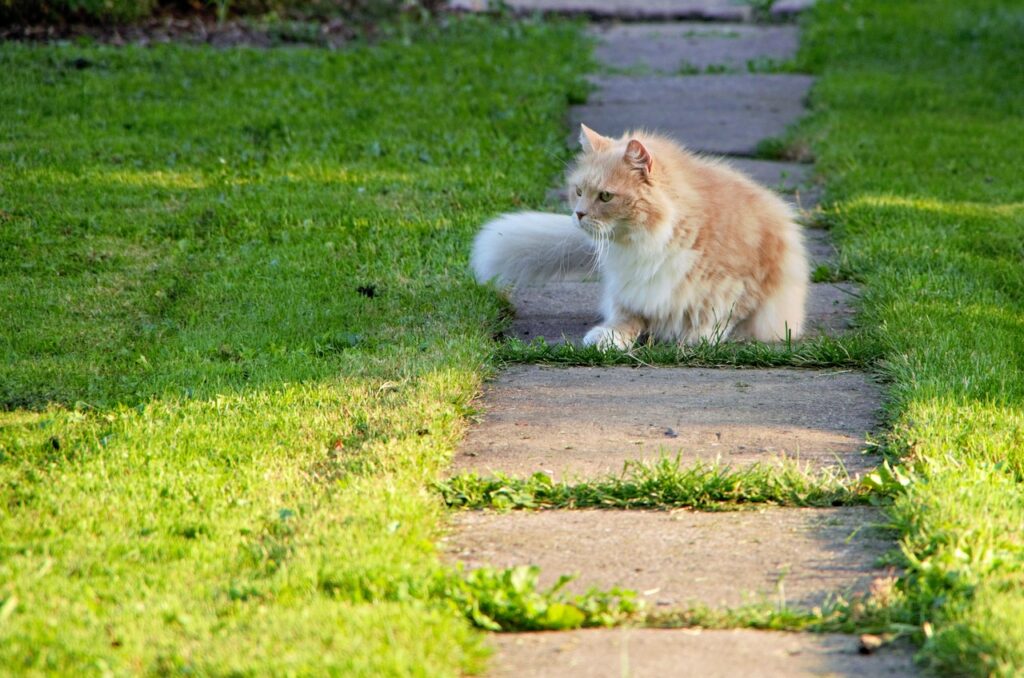Do Cats Eat Hamsters? – Is It Safe to Have Cats and Hamsters Living Together?
Do you have a pet hamster in your home but are concerned that your cats might be tempted to do them harm? If so, then this article is for you. We will explore the risks associated with having cats and hamsters living in close proximity and provide practical tips on keeping them safely separated while providing both animals with the necessary environment they need to thrive. Read on to learn more about whether cats eat hamsters and whether it is safe for them to live together!
Do Cats Eat Hamsters? Analyzing Feline Carnivore Habits
Cats are obligate carnivores, meaning their diet consists almost entirely of meat. Cats catch their prey and consume it raw, sometimes even consuming their victims’ fur, bones, and organs. Including small rodents like hamsters.
What Do Cats Normally Eat?
Cats typically feast on insects and birds, and small mammals like mice, rabbits, and squirrels in the wild. Domestic cats largely rely on wet or dry commercial cat food for sustenance, though they occasionally snack on other things like treats or small pieces of cooked chicken or liver. In certain cases where cats are left alone for extended periods without access to food. They may develop an appetite for non-carnivorous items like plants or fabrics.
Can Cats Eat Hamsters?
The answer is ‘yes’: cats can (and do) eat hamsters. A domestic cat with access to a hamster could hunt it down and kill it as part of its natural instinctive behaviour. Wild cats also target small rodents such as hamsters to satisfy their carnivorous needs. However, this is quite rare since hamsters are not easily accessible in the wild and other more common prey species (e.g., mice) tend to take priority in terms of hunting efforts made by felines.
Reasons Why Cats Might Eat Hamsters
There are a few reasons why a cat might decide to eat a hamster:
Hunger:
if a cat feels particularly hungry, it may consider hunting down whatever prey is available (even if this means taking on something significantly larger than its usual prey).
Instinct:
Cats can be instinctively motivated to hunt any animal within reach – including hamsters – due to their natural predatory behaviour.
Boredom/Curiosity:
Some cats may become bored when left alone with nothing else to do besides sleep or groom themselves. Consequently, they may start exploring their environment, looking for new experiences. Which often involves attacking small animals like hamsters that cross paths with them during this process.
Advantages of Not Letting Your Cat Eat Hamsters
Health Risks:
Eating an unfamiliar animal (such as a hamster) carries certain health risks; consuming uncooked meat from rodents can lead to bacterial infections that can make your cat seriously ill if not treated properly.
Moral Reasons:
Even if your cat could kill and eat a hamster without suffering any adverse health effects, there would still be moral considerations one should consider when allowing such activities around pets. Many people don’t feel comfortable condoning such behaviour from an ethical perspective or just feeling generally uneasy about it due to an emotional attachment with the pet/prey species involved in these interactions.
Disadvantages Of Not Letting Your Cat Hunt Hamsters
Unnatural Behavior:
by preventing your cat from hunting its natural prey, you would be limiting its ability to engage with its instincts which could ultimately lead them towards developing behavioural problems over time due to frustration caused by being deprived of fulfilling those needs through proper outlets such as hunting or playing with toys designed specifically for cats’ sharpening reflexes while giving them plenty of mental stimulation.
Reduced Hunting Skills:
When prevented from regularly hunting, a cat’s skill set for catching prey will slowly decrease due to lack of practice. This means that when put back into contact with its surroundings after long periods away from home (or just generally outdoors). It won’t be able to function properly since some important skills related specifically towards hunting have been forgotten through disuse, causing potential danger both for the feline itself. Since it wouldn’t be able to hunt successfully enough. potential prey that might become exposed unexpectedly during these unexpected outings.
Conclusion
Cats can certainly eat hamsters, but this doesn’t necessarily mean they should. There are multiple reasons why one shouldn’t let their pet indulge in such activity ranging from health issues derived directly from consuming uncooked flesh to moral implications associated with the act itself. Regardless if done heartlessly or not towards the hunted animal. Additionally, not providing adequate expressions for your pet’s instincts could eventually lead towards developing serious behavioural issues, so whenever possible, try finding appropriate outlets for those behaviours instead of denying them altogether – unless necessary – such as providing toys specifically designed for sharpening reflexes while also allowing plenty amounts mental stimulation.
If you’re concerned about your pet getting injured or sick due to hunting hamsters, then make sure to get your furry friend insured with Furrr.co.uk. With their comprehensive coverage plans and top-class customer service. You can be sure that your beloved pet will be covered in case of any unfortunate incidents. Get started today and give yourself peace of mind of knowing that your cat is taken care of!
This article examines whether cats eat hamsters and the risks associated with this behavior. It provides practical tips on keeping cats and hamsters safely separated while providing both animals with the necessary environment they need to thrive, as well as looking at evidence from research, veterinary advice and animal behavior. Get more information about whether it is safe










